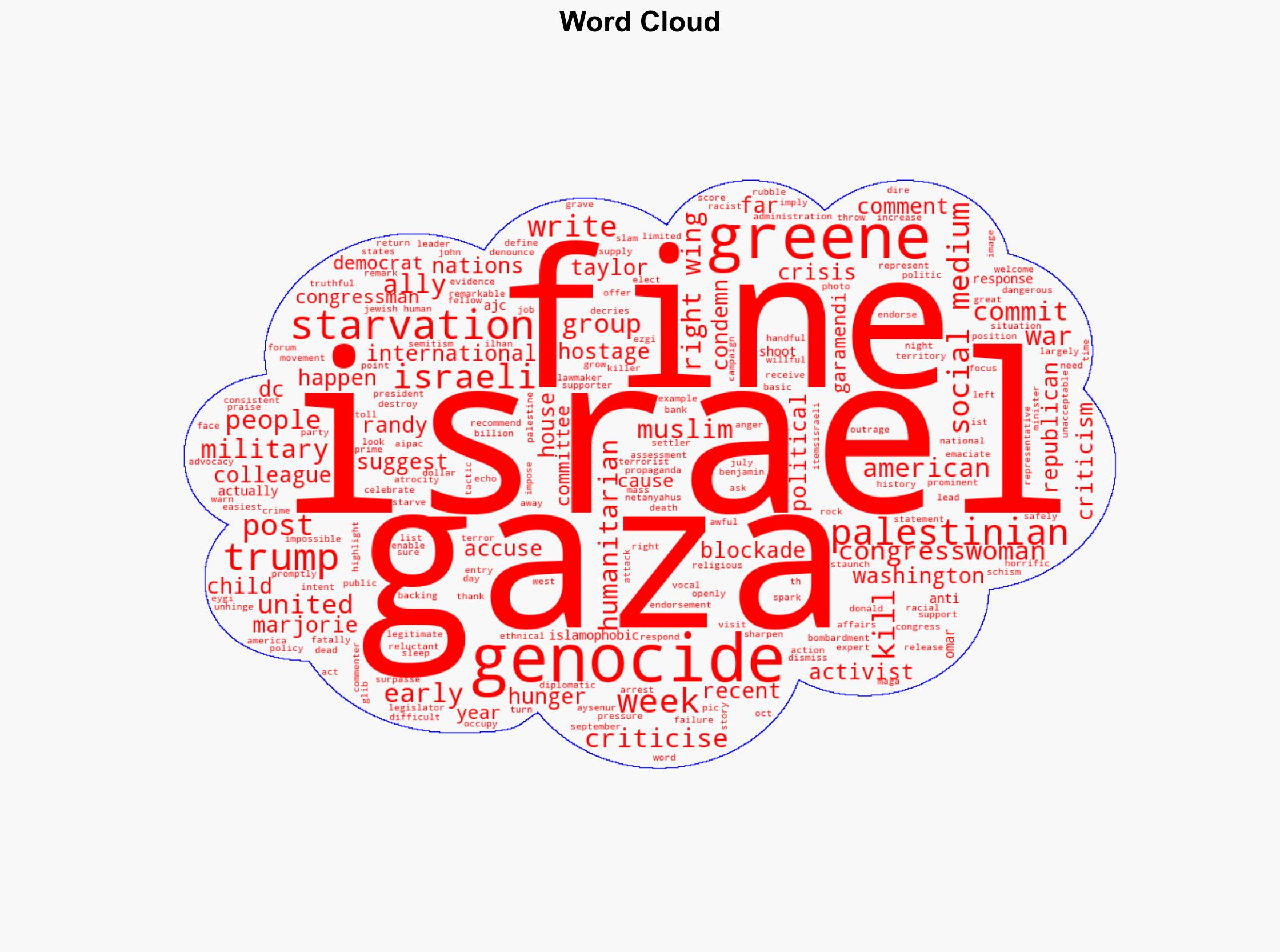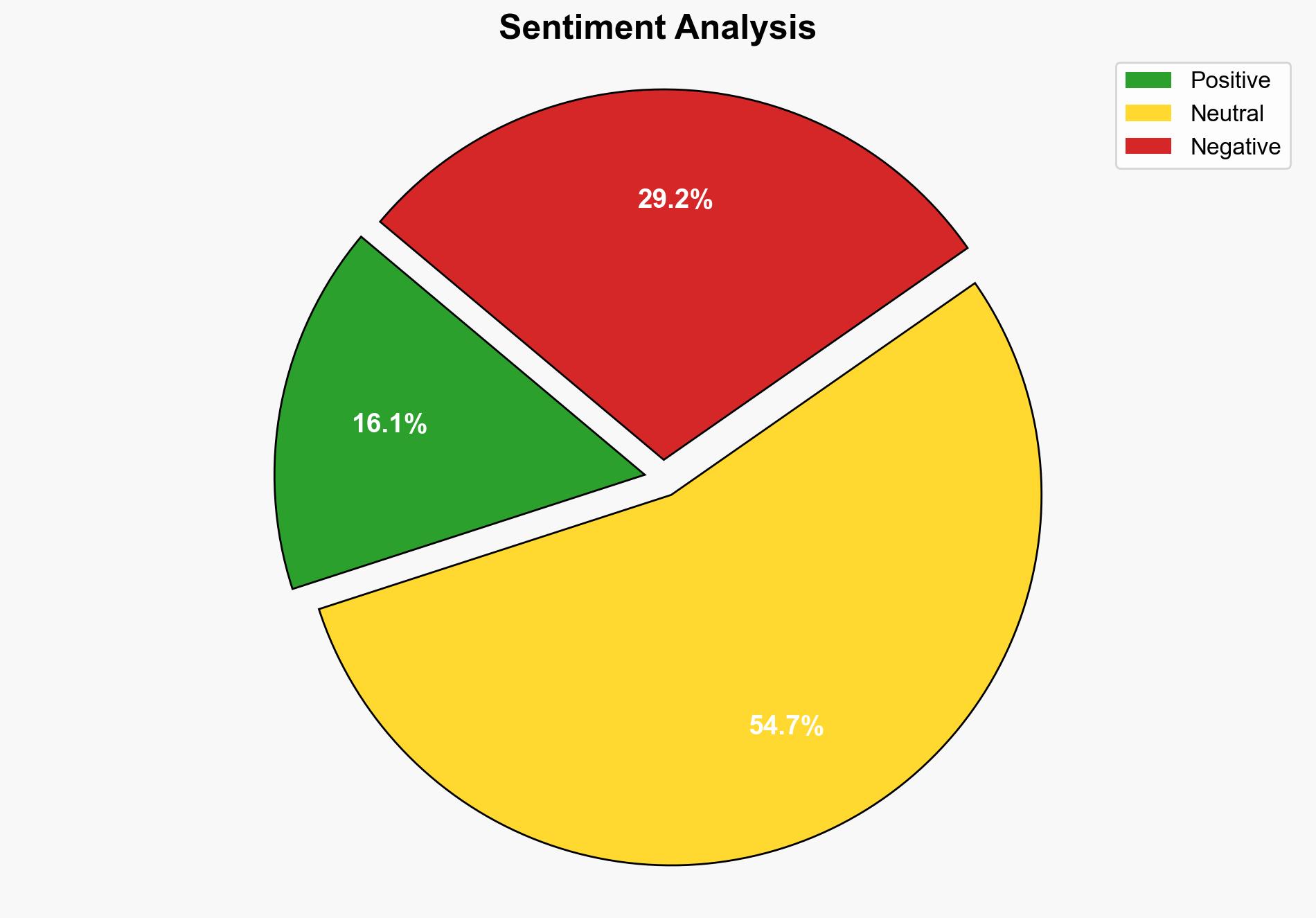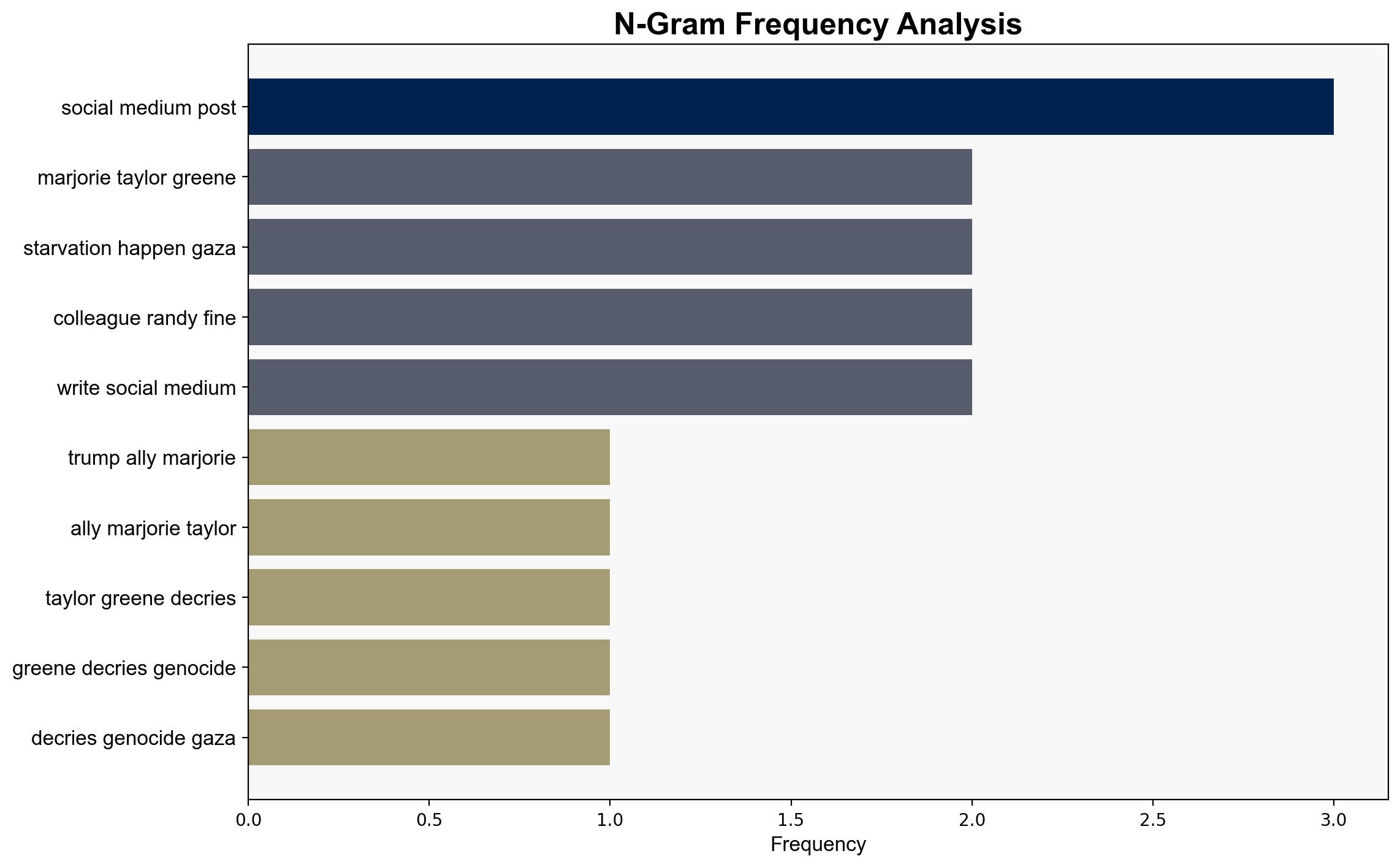Trump ally Marjorie Taylor Greene decries genocide in Gaza – Al Jazeera English
Published on: 2025-07-29
Intelligence Report: Trump ally Marjorie Taylor Greene decries genocide in Gaza – Al Jazeera English
1. BLUF (Bottom Line Up Front)
The most supported hypothesis is that Marjorie Taylor Greene’s statements reflect a growing schism within the Republican Party regarding U.S. policy towards Israel. This division could influence future U.S. foreign policy and domestic political dynamics. Confidence level: Moderate. It is recommended to monitor shifts in political alliances and rhetoric within the party, as well as potential impacts on U.S.-Israel relations.
2. Competing Hypotheses
1. **Hypothesis A**: Marjorie Taylor Greene’s comments are primarily driven by personal conviction and reflect a genuine concern for the humanitarian situation in Gaza, independent of broader political strategy.
2. **Hypothesis B**: Greene’s statements are strategically motivated to capitalize on and amplify existing divisions within the Republican Party, potentially aligning with a faction that is critical of Israel’s actions to gain political leverage.
Using the Analysis of Competing Hypotheses (ACH) 2.0, Hypothesis B is better supported due to the context of Greene’s alignment with the MAGA movement, which has shown increasing willingness to challenge traditional Republican stances on foreign policy.
3. Key Assumptions and Red Flags
– **Assumptions**: It is assumed that Greene’s statements are not isolated and reflect broader sentiments within certain Republican factions. It is also assumed that her comments are not purely performative.
– **Red Flags**: The potential for cognitive bias exists if Greene’s statements are interpreted solely through the lens of her past controversial remarks. Missing data includes the internal dynamics and discussions within the Republican Party regarding Israel.
4. Implications and Strategic Risks
– **Geopolitical**: A shift in U.S. policy towards Israel could alter Middle East dynamics, affecting alliances and regional stability.
– **Domestic Politics**: Increased polarization within the Republican Party could lead to shifts in voter bases and influence upcoming elections.
– **Psychological**: Public perception of U.S. foreign policy may shift, influencing both domestic and international opinions on American leadership.
5. Recommendations and Outlook
- Monitor statements and policy proposals from key Republican figures to assess shifts in party stance on Israel.
- Engage in diplomatic dialogues to understand potential impacts on U.S.-Israel relations.
- Scenario Projections:
- Best Case: Constructive dialogue within the Republican Party leads to a balanced foreign policy approach.
- Worst Case: Deepening divisions result in erratic policy shifts, destabilizing U.S. foreign relations.
- Most Likely: Incremental changes in rhetoric and policy, with ongoing internal party debates.
6. Key Individuals and Entities
– Marjorie Taylor Greene
– Randy Fine
– John Garamendi
– American Israel Public Affairs Committee (AIPAC)
– American Jewish Committee (AJC)
7. Thematic Tags
national security threats, geopolitical dynamics, U.S. foreign policy, Republican Party divisions




